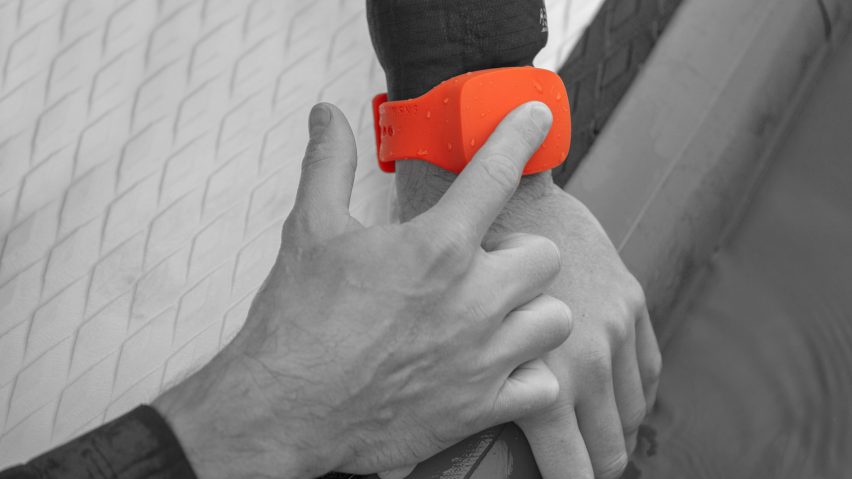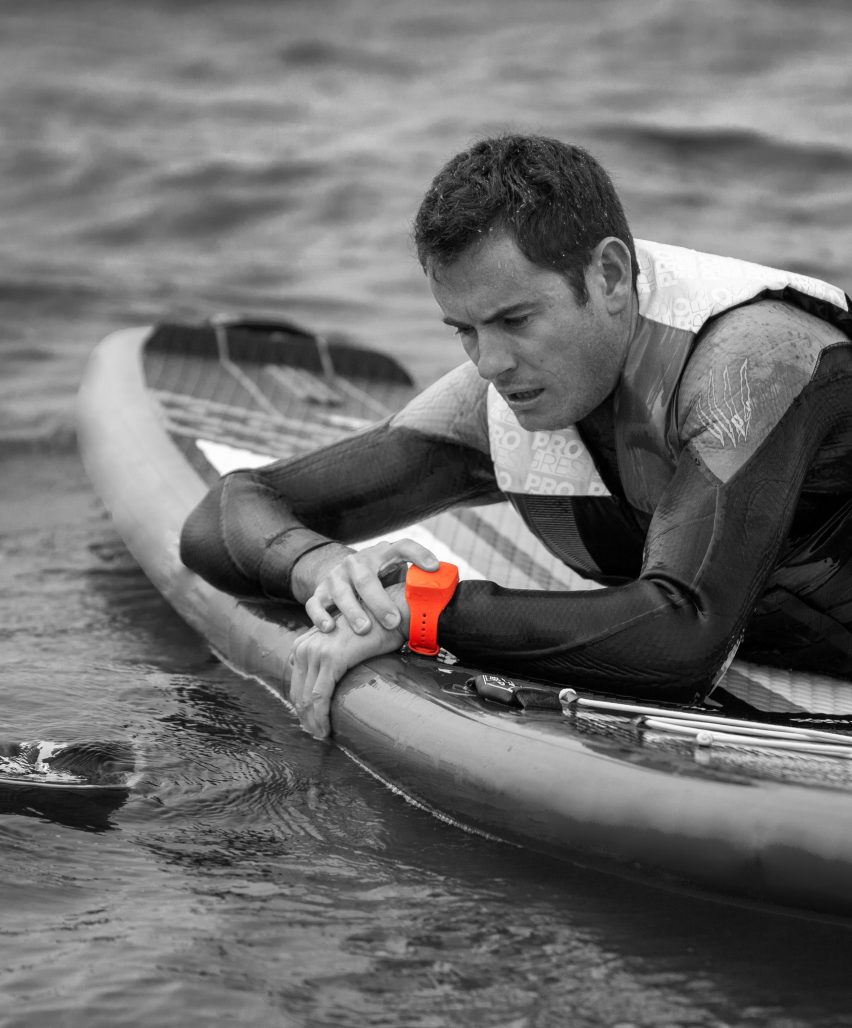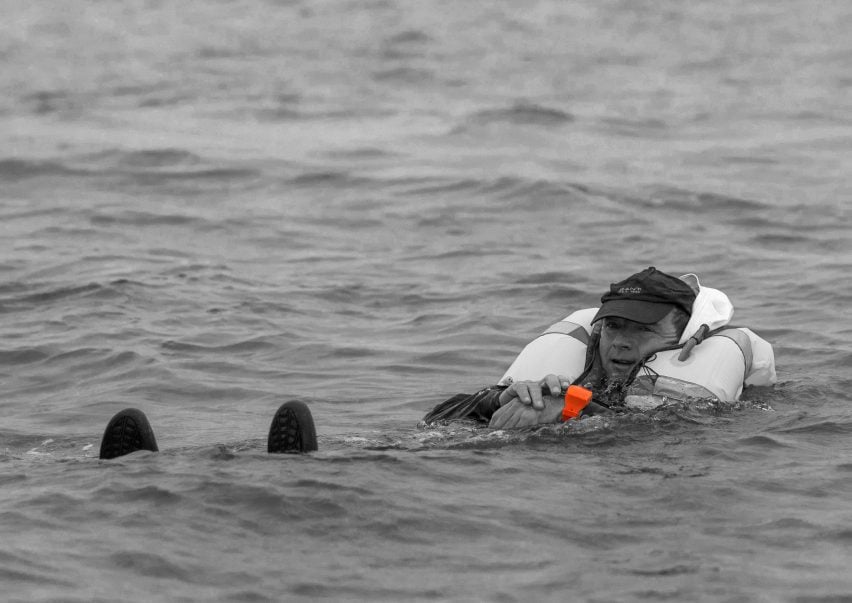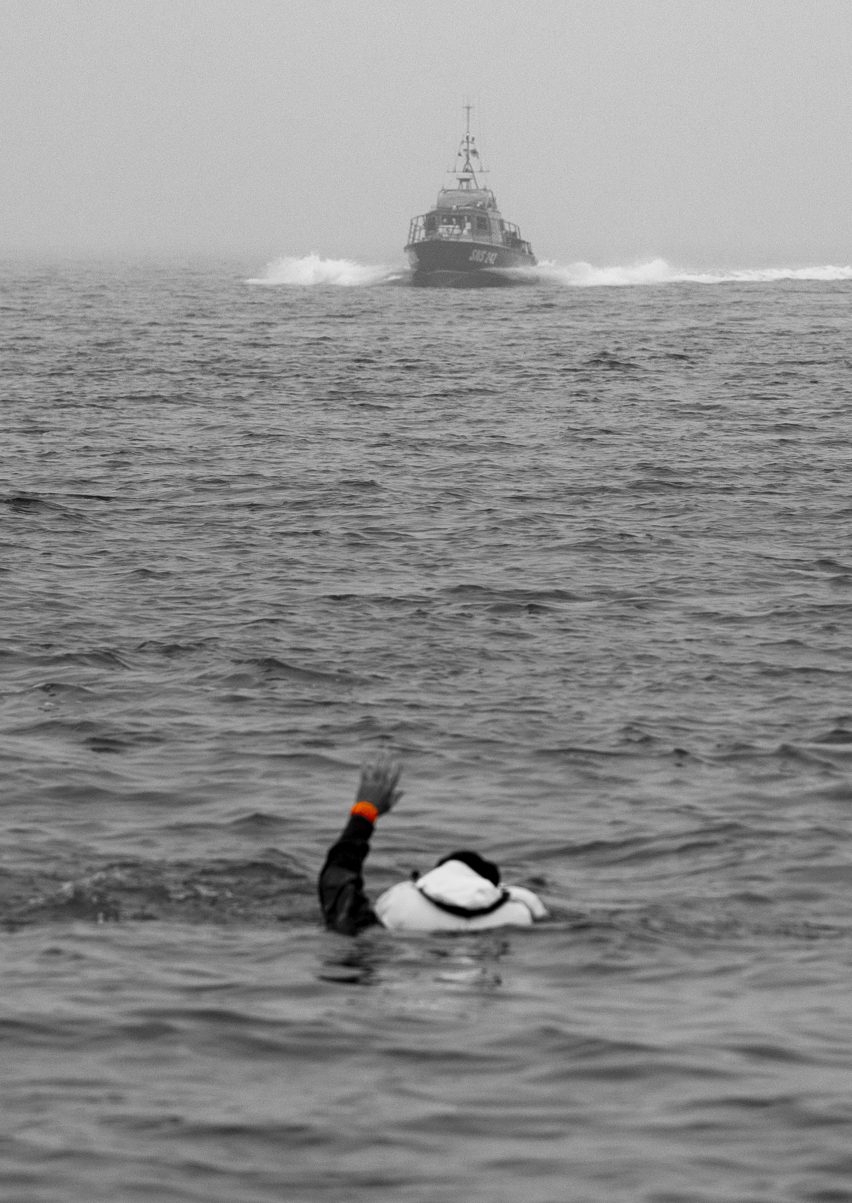
GPS-connected wristband allows swimmers who run into difficulties to alert rescue services
French designer Philippe Starck has developed a GPS-tracking wristband that allows people who enjoy water sports to alert the coastal rescue to their location in an emergency.
Called Dial, the wearable technology features a waterproof silicone wristband with an in-built GPS tracker that allows the wearer to alert rescue services to their exact location on the beach or in the sea.

Starck was commissioned by the Société Nationale de Sauvetage en Mer (SNSM), the French voluntary coastguard organisation, to create a device that can accurately track the location of an individual engaged in water-related activities.
If the wearer runs into danger they can activate the device to let emergency services know exactly where they are. It can also be used to locate children on the beach who are easily separated from their parents.

SNSM wanted a device that could not only reduce the time taken by rescue services to find the person in danger, but also reduce the number of false alarms experienced on a daily basis, which take rescuers away from real emergencies.
"Dial has been designed for a very large audience, that is to say the millions of people who practice water sports or sailing, as well as for the safety of children on beaches and even water sports rental companies," said Starck.
Featuring an "ergonomic and elegant design", the wristband – available in a bright orange colour – has an adjustable strap and a rectangular surface that functions as a button, which activates an in-built GPS tag when pressed.
"Any moment of happiness can turn into danger. Dial, just by pressing a button, allows happiness to remain happiness and life to survive," continued Starck.

In a similar project, Royal College of Art student Hamza Oza built a cloud-based system that helps those on pilgrimage locate their loved ones during Hajj without the need for a smartphone or phone signal.
Starck has taken on an eclectic selection of projects this year, ranging from an interior for the first commercial space station to a hotel with an 18th-century-style house on its roof in France.